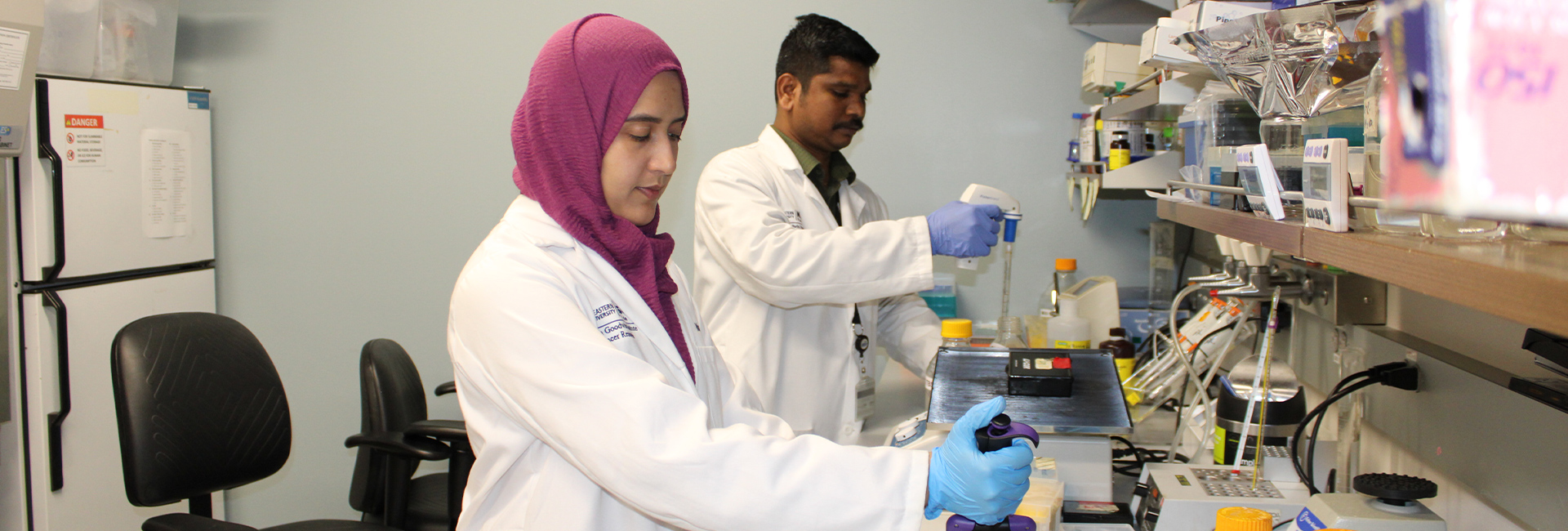Overview
The Rumbaugh-Goodwin Institute for Cancer Research, Inc. (RGI), a non-profit 501(c)(3) organization, was established in 1959 and is located in Plantation, FL, just outside of Fort Lauderdale. RGI was merged with the Health Professions Division (HPD) of Nova Southeastern University (NSU) in February of 2005. Since the merger RGI has been steadily expanding its programs and research activities. RGI is committed to rapidly developing anti-cancer therapies, in conjunction with industrial and academic partners, using efficient models of cancer growth and metastasis with the aim of moving novel compounds to market in the shortest time possible. Additionally, RGI is investigating 1) why cancer becomes resistant to chemotherapy over time, 2) how this resistance can be overcome, 3) which chemotherapeutic agents are most likely to work in an individual with particular genetic make-up and 4) what causes cancer to grow aggressively and spread. The Institute's main goal is to develop newer cancer therapies that can specifically target tumors, with minimal cellular damage and toxicity to the patient. Its long-standing relationship with the National Cancer Institute and The National Institute of Health, Royal Dames of Cancer Research Inc., American Cancer Society etc. provides support for the advancement and development of these kinds of promising new investigational therapies.
RGI has excellent laboratory facilities, dedicated research staff and passion for getting new treatments to patients quickly. Our ability to move towards our research goals is facilitated by numerous generous donations, government grants and collaborations with academic and industrial partners. We are very proud to be supported by the Royal Dames of Cancer Research. Since 1969, the Royal Dames of Cancer Research have generously supported RGI through their annual Tiara Ball and other events.
RGI plans to continue its ongoing basic research as well as anti-cancer drug discovery and screening. Particular emphasis will be placed on research conducted with its unique human xenograft model and cell line that had won recognition for RGI in the past from the National Cancer Institute and various academic institutions. The aims of the major research programs are to:
- Study mechanisms of tumor growth, angiogenesis and metastasis
- Discover new anticancer and anti-metastatic therapies
- Initiate clinical trials with recently patented anti-angiogenic compounds
- Identify critical growth factors/receptors that induce cancer development
- Identify new genes and gene mutations responsible for cancer growth and metastasis
- Identify reasons of drug resistance and possible recourse
- Evaluate chemotherapeutic/biotherapeutic agents effective against variety of cancers
- Discover and evaluate natural products with anticancer potential

